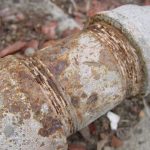Tips for Maintaining Your Water Heater
While you may rely on your washing machine and dishwasher, your water heater is likely to be the most heavily used appliance in your home. In fact, where your heating and air conditioning is used for several months of the year, your washing machine once or twice a week and your dishwasher every day, your hot water heater is actually running 24/7 each and every day of the year. This heavy use places strain on the system, making proper maintenance vital to keep your unit running effectively. Fortunately, there are some simple maintenance tips to ensure that your hot water heater continues to operate efficiently.
Check the Anode Rod
If you are particularly handy, look inside the tank of your water heater and you will see a long metal rod. This is the anode rod, and it can be made of zinc, magnesium or aluminum. The anode rod is designed to make contact with the tank water and attract the ions responsible for rust. This means that while the anode rod is in good condition, it can prevent rusting in the water tank. Unfortunately, anode rods do not have an unlimited lifespan. Over time, the rod will degrade until it is simply a wire core. Once the rod has disintegrated, it will lack the ability to protect your water heater. Therefore, it is a good idea to check your anode rod at least once or twice a year for signs of degrading. If the rod has been compromised, you should replace it promptly. If this is too much of a DIY project, you can always ask a professional plumber to inspect it.
Flush the Tank Regularly
Since most water supplies contain impurities or are hard and contain calcium and magnesium, sediment can build up inside the tank of your hot water heater. This is especially problematic when you live in a hard water area. When sediment build up is allowed to accumulate it can start to insulate the tank bottom, like a cement umbrella stand. This can significantly compromise the performance of your water heater and could compromise the lifespan of the unit. Fortunately, this scenario can be avoided just by regularly flushing the tank. Draining out the tank allows for sediment to be expelled before it can form a hard scale on the bottom of the tank. Most manufacturers recommend that water heaters be flushed at least once every year. This means that flushing the tank should be incorporated into your annual maintenance routine.
Develop a Service Routine
While servicing is not particularly a DIY tip, it is nevertheless vital to ensure that your water heater remains operating at peak efficiency. Regular servicing is the best form of preventative maintenance. An experienced plumbing technician will be able to detect any minor issues that may have developed. Addressing these issues promptly will stop them from becoming major problems that could trigger a breakdown. While it may seem counterproductive to spend money to save money, it is far cheaper to replace smaller components before their total failure can trigger a larger issue. For example, allowing a worn washer to fail could impact a pump or other vital component that could cost hundreds of dollars to replace. Establishing a regular servicing routine will not only boost the efficiency of your hot water heater, but could extend the lifespan of the unit, saving you hundreds of dollars in the long run.
By Giovanni Longo President Flood Brothers Plumbing
Giovanni Longo is a 3rd generation master plumber who has been practicing his craft and trade in the greater Los Angeles area for well over a decade and a half. A plumbing and hydraulics-engineering innovator, Giovanni’s particular world-class expertise focuses on dealing with challenging sewer system designs as well as resolving complex commercial and residential draining issues. As a certified Flood Mitigation expert, he is also well versed in a wide variety of water damage and remediation solutions.





